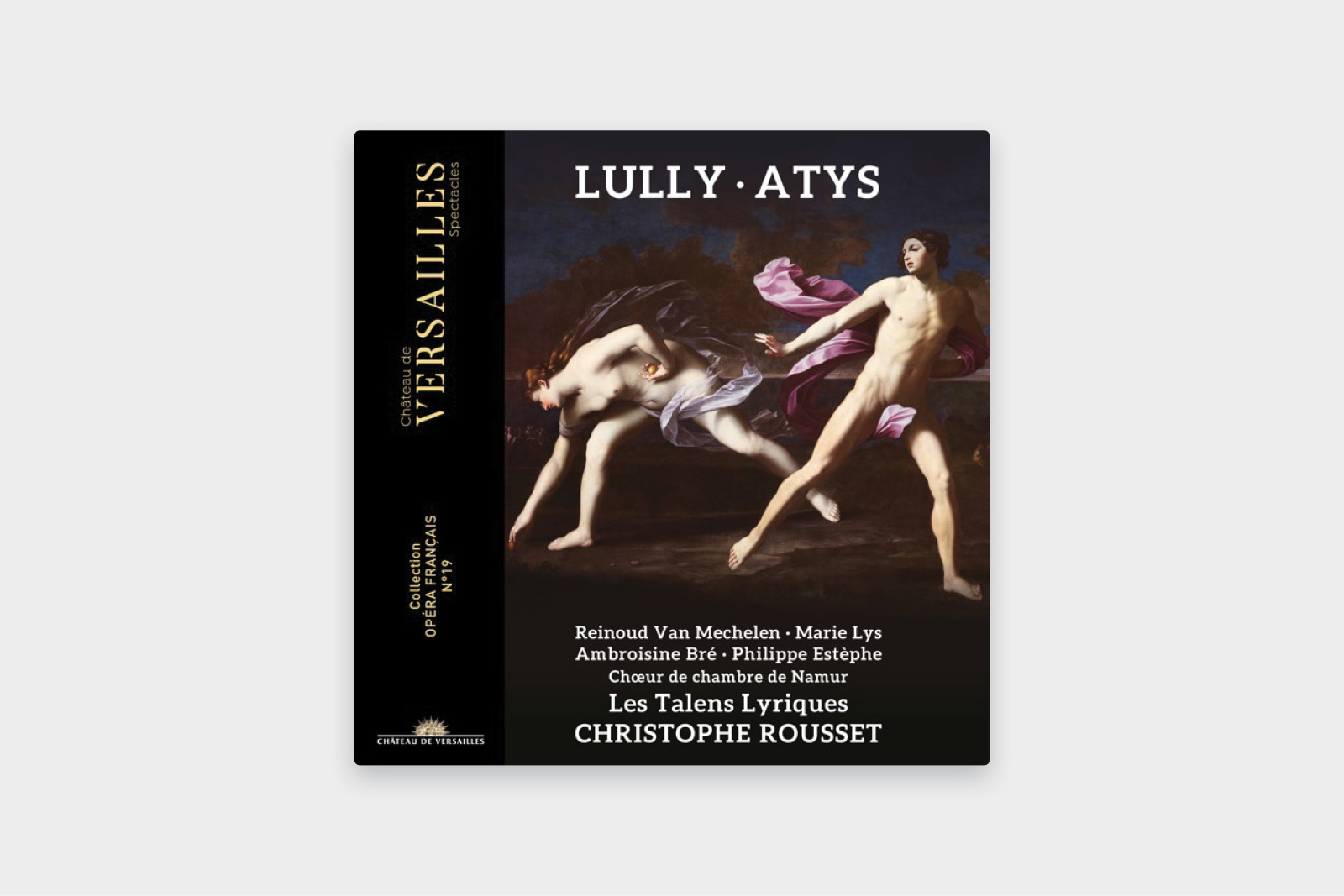This latest chapter in Christophe Rousset’s traversal of the complete operas of Lully sees him and Les Talens Lyrique finally tackle Atys, “the King’s Opera”, according to Rousset “a tale which deeply influenced the Baroque movement – composers, performers and audiences alike.”

Indeed, it is a story that continues to be influential today, and as Rousset recognises when reflecting on his tackling of one Lully masterpiece after another, “all my years in contact with lyrical tragedies have proven to me that the journey is arduous yet possible: the veil of Louis XIV formality is torn apart to reveal a human and deeply moving drama.”
Atys (1676) is a tragedy in a prologue and five acts to a libretto by Philippe Quinault. At its heart are the travails of hapless lovers Atys (Reinoud Van Mechelen) and Sangaride (Marie Lys). Atys and Sangaride, the latter being betrothed to the Phrygian King Celenus (Philippe Estèphe), confess their love for each other. Compelled by love for Atys, the goddess Cybele (Ambroisine Bré) chooses him as her high priest over Celenus, but soon comes to suspect that Atys loves Sangaride.
Sangaride believes Atys no longer loves her, but he reassures her before calling off Sangaride’s wedding to Celenus. Alas, Cybele and Celenus plot revenge against the lovers. Cybele places Atys under a spell, causing him to believe that Sangaride is a monster. In his delusion, he murders her. After regaining his reason, Attis tries to take his own life, but Cybele intervenes by turning him into a pine tree.
Such are the fates of gods and mortals in mythological operas. But we’re really here for Lully’s rich, ornate and variegated score, right? And Rousset and Co’s equally masterful realisation of it: lyrically vital, impeccably stylish and theatrical in the finest French baroque tradition.
This should come as no surprise: Rousset worked with William Christie on Les Arts Florrissants’ highly influential 1986-1987 production of Atys. Revisiting the 1987 release of that version, one is stuck by the similarities and differences: Christie is perhaps bolder, more dramatic, more conscious of breaking new ground; Rousset is more refined, more elegant, the heir to decades of a specifically French baroque performing tradition initiated by Christie. Yet both share an understanding of how best to articulate the underlying human tragedy, Cybele’s divinity notwithstanding.
As do Rousset’s brilliant soloists, supported by the instrumental ensemble’s rhythmic incisiveness and colouristic flamboyance. Reinoud Van Mechelen’s slightly burred haute-contre and soprano Marie Lys’ gorgeous vocal sheen especially make for a wonderful timbral contrast underscoring Atys’ and Sangaride’s doomed love. And indeed, there are no weak links here. In short, Rousset’s Atys is a right royal triumph.
Composer: Lully
Work: Atys
Performers: Reinoud Van Mechelen t, Marie Lys s, Ambroisine Bré ms, Philippe Estèphe bar, Choeur de Chambre de Namur, Les Talens Lyriques/Christophe Rousset
Label: Châteu de Versailles Spectacles CVS126 (3CD)











Comments
Log in to join the conversation.